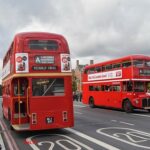What arguments have been made about the necessity of the arrests by the authorities?
At the recent pro-Palestine london-by-simon-his-camera/” title=”Hungerford Bridge London by Simon & His Camera”>rally in London, thousands of people took to the streets to show their support for the Palestinian people. The march, which drew a massive crowd, was organized to protest against the ongoing Israeli-Palestinian conflict and to demand an end to the violence and oppression faced by the Palestinian population. However, the event took a dramatic turn when arrests were made by the authorities to control the situation.
When the news of the rally broke, people from all walks of life came together to join the protest, from students and activists to families and individuals who simply wanted to voice their solidarity with the people of Palestine. The atmosphere was one of passion and unity as the crowd marched through the streets with banners, flags, and chants calling for justice and peace in the region. However, as the rally progressed, tensions rose and the authorities felt the need to intervene, resulting in a number of arrests being made.
The arrests made during the rally have sparked controversy and debate, with many questioning the actions of the authorities and their handling of the situation. While some argue that the arrests were necessary to maintain order and ensure the safety of the public, others believe that it was an infringement on the right to peaceful protest and freedom of speech. The incident has reignited discussions about the balance between maintaining public order and upholding the democratic right to protest.
The rally and subsequent arrests have also brought attention to the complex and sensitive nature of the Israeli-Palestinian conflict and the emotions it evokes in people around the world. The issue has been a source of international debate and has divided opinions for decades, with no clear consensus on how to achieve a lasting resolution. The London rally served as a powerful reminder of the widespread support for the Palestinian cause and the urgency of finding a peaceful and just solution to the conflict.
Rallies and protests have long been a means for people to express their grievances and advocate for change. They serve as a platform for communities to come together, raise awareness, and demand action from their governments and leaders. However, the events in London also highlight the complexities and challenges that come with organizing and participating in large-scale demonstrations.
As the dust settles on the aftermath of the rally and the arrests, it is important to reflect on the impact of such events and the broader implications for social and political activism. The incident in London serves as a reminder of the power of collective action and the determination of people to stand up for what they believe in. It also raises important questions about the limits of public protest and the responsibilities of both protesters and authorities in ensuring peaceful and respectful demonstrations.
Despite the arrests and controversy, the rally in London stands as a testament to the unwavering support for the Palestinian people and the call for an end to the violence and oppression they face. It has reignited conversations about the Israeli-Palestinian conflict and the role of the international community in finding a just and lasting solution. The event has also underscored the need for open and constructive dialogue on the issues at hand, in the hopes of fostering understanding and empathy for all those affected by the conflict.
the London rally for Palestine and the arrests made during the march have brought to light the complexities and challenges of public protest and the ongoing Israeli-Palestinian conflict. The event has reignited global discussions about the situation in the region and the need for a peaceful resolution. It serves as a reminder of the power of collective action and the importance of raising awareness and advocating for change. While the arrests have sparked controversy, the rally has demonstrated the unwavering support for the Palestinian cause and the determination of people to stand up for justice and peace.
On Saturday, the Metropolitan Police (Met Police) announced that eight individuals were taken into custody during a pro-Palestine demonstration in London. This particular march was the 18th event organized by the Palestine Solidarity Campaign (PSC) since October 7. According to British media reports, thousands of demonstrators set out from Piccadilly Circus and made their way through central London.
The Met Police stated that six people were arrested for various offenses including racially aggravated Public Order offenses related to signs and a gesture, criminal damage, and assault. Social media videos showed protesters carrying signs with slogans such as “From the river to the sea, Palestine will be free” and ”Exist, resist, return.”
Additionally, two counter-protesters were detained on suspicion of breach of peace and assaulting police officers when they stood outside the Park Lane Hotel holding a sign that read “Hamas is terrorist.” Reportedly, this led to a temporary halt in the march while they were being apprehended by police after encountering resistance. Following this incident, these individuals experienced verbal harassment from the pro-Palestine crowd.
A separate counter-demonstration took place on Kensington High Street but was held at bay from approaching the main pro-Palestine protest by law enforcement officers and barricades. The counter-protesters played music such as Hurricane by Eden Golan – an Israeli Eurovision contestant – while waving UK, US,and Israeli flags. One participant held up a sign reading ”We love life more than Hamas loves death,” while another displayed a flag with “Nova – we will dance again” written on it.
Amidst all this activity , it becomes clear that there are strong feelings surrounding these events dating back quite some time .


